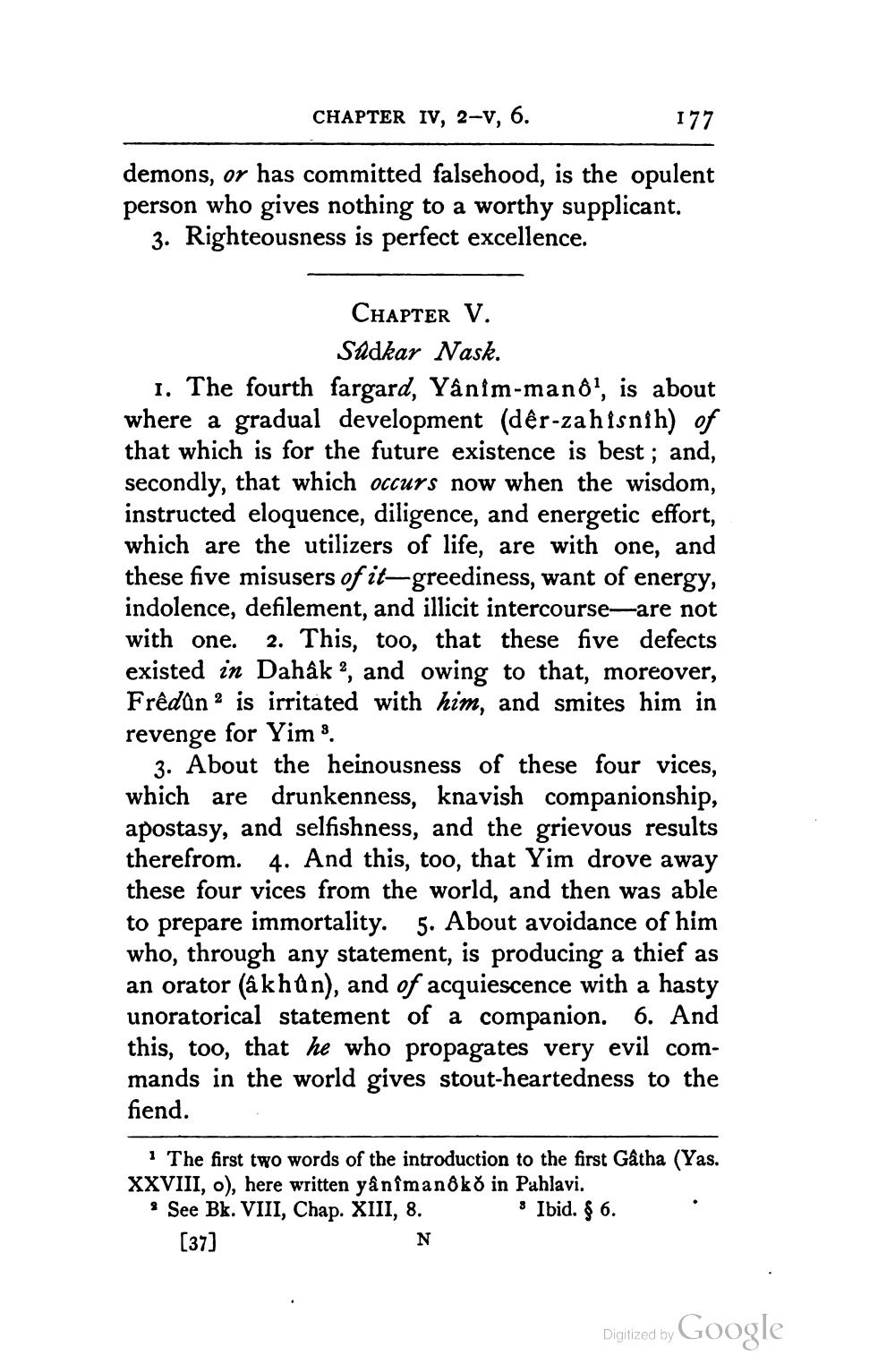________________
CHAPTER IV, 2-v, 6.
177
demons, or has committed falsehood, is the opulent person who gives nothing to a worthy supplicant. 3. Righteousness is perfect excellence.
CHAPTER V. Súdkar Nask.
1. The fourth fargard, Yânim-manô1, is about where a gradual development (dêr-zahisnih) of that which is for the future existence is best; and, secondly, that which occurs now when the wisdom, instructed eloquence, diligence, and energetic effort, which are the utilizers of life, are with one, and these five misusers of it-greediness, want of energy, indolence, defilement, and illicit intercourse-are not with one. 2. This, too, that these five defects existed in Dahâk, and owing to that, moreover, Frêdûn is irritated with him, and smites him in revenge for Yim3.
3. About the heinousness of these four vices, which are drunkenness, knavish companionship, apostasy, and selfishness, and the grievous results therefrom. 4. And this, too, that Yim drove away these four vices from the world, and then was able to prepare immortality. 5. About avoidance of him who, through any statement, is producing a thief as an orator (âkhun), and of acquiescence with a hasty unoratorical statement of a companion. 6. And this, too, that he who propagates very evil commands in the world gives stout-heartedness to the fiend.
1 The first two words of the introduction to the first Gâtha (Yas. XXVIII, o), here written yânîmanôko in Pahlavi.
2 See Bk. VIII, Chap. XIII, 8.
" Ibid. § 6.
[37]
N
Digitized by
Google




